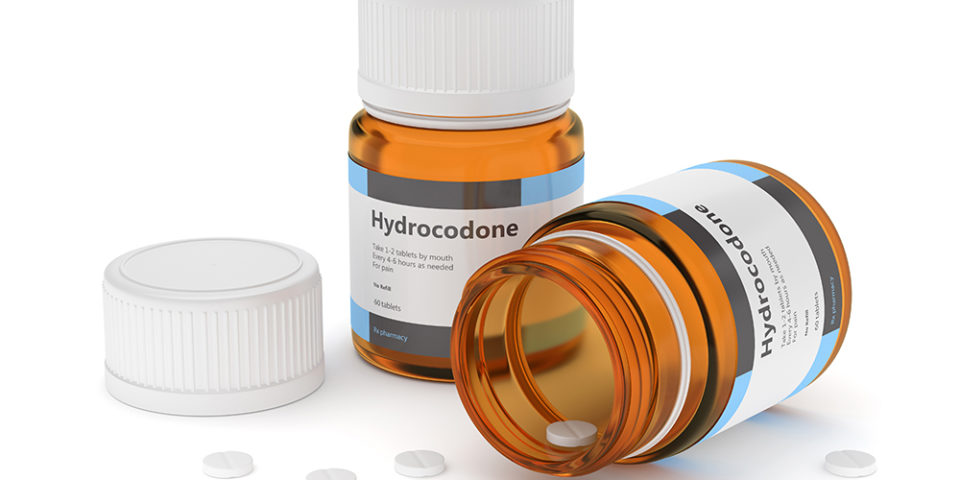How to protect yourself from opioid addiction
We’ve all heard about the global opioid epidemic, but many of us may not know how or why opioids became such a public health issue. Pain medicine specialist Kevin Walker, MD, discussed when opioids are appropriate, why they can be addictive and what alternatives can be used for pain management.
“Opioids have been around a long time, but they are not dissimilar to other medications,” said Dr. Walker. “Every medication has risks and benefits.”
What are some commonly prescribed opioid medications?
Dr. Walker said these are some opioid medications that are commonly prescribed:
- Hydrocodone-based products like Lortab or Norco
- Oxycodone-based products like Oxycontin
- Morphine, which can be prescribed as an injectable medication when you’re in the hospital
- Fentanyl, which is a synthetic opioid used in operating rooms
When is it appropriate to use opioids?
“It’s common to be given a prescription of an opioid for a couple of days so you can recover from surgery,” said Dr. Walker. “Opioids are used in traumatic events, like a bad car wreck. We also give them to patients who have cancer, especially metastatic cancer. We are starting to study this extensively to see if all patients need opioids, and the good news is the answer is no.”
Before taking a pain medication, what are some questions I should ask my doctor?
Dr. Walker said it’s important to ask the question why, because if you understand the why, your compliance is going to be better and it’s going to be a better treatment plan. These are some questions patients should ask:
- Why am I taking this medication?
- Why do I need this procedure?
- Why do I need to do whatever it is you’re asking me to do?
- What are the side effects of this medication?
- What are the risks and how do I mitigate those risks?
- What can I do to protect myself, to make myself healthier and not cause any other harm?
What are some alternatives to opioids for pain relief?
Dr. Walker said the type of pain medication depends on your diagnosis. Here are some options:
- Surgical or inflammatory pain. Medications like Tylenol and Advil work well. Alternating those two medicines is a great way to approach it, so you’re not taking too much of one.
- Back pain. Back pain is muscular in most cases, so using medications to loosen up muscles is appropriate. Also, stretching those muscles, maybe doing yoga or Tai-Chi, can make you healthier.
- Nerve pain. If you have nerve pain such as neuropathy, there are medications called membrane stabilizers that can calm those nerves down. There are even certain subsets of anti-depressant called SNRIs that can help with pain transmission as well.
Depending on the level of pain, there are other options for treatment that do not involve opioids. Some of these therapy alternatives include:
- Exercise and movement
- Acupuncture
- Massages
- Physical therapy
- Rehabilitation therapy
- Occupational therapy
What are some of the misconceptions about opioid use?
Dr. Walker said these are some common misconceptions he hears from patients and reasons why they’re not true:
“Opioids treat my pain.” Opioids are just a perception blocker. They don’t treat the pathology. It’s better to treat the problem, so you don’t have the symptom of pain.
“I won’t become addicted.” Nobody’s immune to abuse of these medications, and everybody will become chemically dependent on these medications if you take them long enough. Addiction is real. It’s a medical condition – a brain disease. It affects all of us, no matter where you come from, what your ethnic background, what your socioeconomic status is. You are not protected against it.
What are some warning signs I’m becoming dependent on opioids?
Dr. Walker said to look at what you are focused on. “Is it normal life experiences, like family, job, enjoyment, activities? Or is it a focus on needing more medicine? Because that’s when things start getting out of control and it’s hard for that individual to recognize it. It can take a family member recognizing the change and speaking up about it.”
How should I store or dispose of painkillers?
Dr. Walker said providers are starting to prescribe significantly less, because, on average, people are only using about 15% of what they were prescribed. But if you use this medication chronically, they need to be stored in a protected place.
“Get a lockbox or a safe that very few people have access to. There are people out there that want these medicines and if they know you have them, they’re going to take them from you,” he said.
If you have leftover pills, here are some ways to dispose of them:
- Look for drug take-back programs. These are usually available at your local hospital, government agency (like SC DHEC) or police department.
- Use cat litter. Put the pills in the cat litter and pour some water over it so it turns into a giant block. You can throw it into the trash because the chemicals in the medication have been deactivated.
- Check with your pharmacy. Many are giving patients bags that you can use to dispose of the medications.
- Flush them. It’s safer to flush the medication versus letting them get out on the street.
Find a doctor
Whether you’re looking for a primary care physician or need to see a specialist, we’re here to help with experienced, compassionate care near you.
Find a Doctor

